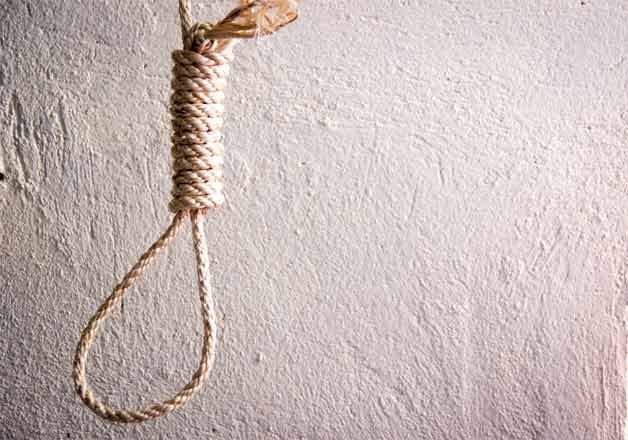
The inextricable nexus between suicide rate and public health has again been brought to the fore, with the recent commemoration of World Suicide Prevention Day (WSPD) on 10 September. Created in 2003, by the International Association for Suicide Prevention (IASP) and the World Health Organisation (WHO), the annual event is meant to raise awareness, seek collaborative support and make advocacy efforts on suicide prevention.
This year’s theme, “Creating Hope through Action,” particularly highlights the urgent need to lay a greater emphasis and effort on changing the narrative around mental health issues, countering misconceptions and addressing the perennial misunderstanding of highly stigmatised persons. It also underscores the imperative of offering concrete counselling to the depressed towards changing their orientation about life.
According to a recent WHO’s report, more than 700,000 people die from suicide yearly. The agency further revealed that 77 percent of global suicide cases occur in low and middle-income countries of the world, of which Nigeria is one. Additionally, reliable reports and figures show that most cases of suicide are presaged by mental health disorders, caused either by substance abuse or by unbearable trauma which alters a person’s psyche and self-worth.
Sadly, almost all the socio-economic factors that can predispose an individual to suicide are prevalent in Nigeria. The perilous state of the nation’s economy has continued to wreak physical and psychological havoc on many lives and homes. Persistent pangs of hunger, unemployment, job losses, threats of insecurity, marital crises, terminal diseases occasioned by lack of access to quality healthcare, as well as other indices of hardship, are potent forces that could predispose people to suicide. Unsurprisingly, figures from WHO and other credible organisations have indicated a surge in suicide rates in the country in recent times.
This sad reality calls for urgent and collaborative efforts on the part of the government, families, mental health experts, the media and, indeed, stakeholders in all strata of the Nigerian society to stem the tide of suicides in the country. The Nigerian government at all levels must demonstrate more sensitivity and responsibility in ameliorating the sufferings of the populace. This can be done through creation of palliative measures, provision of more job opportunities, supply of basic amenities, as well as ensuring availability of loans for entrepreneurs. These will go a long way in alleviating poverty, which has been identified as major cause of depression and, ultimately, suicide.
Government must also work towards creating a fully developed, comprehensive and integrated national suicide prevention plan, preferably overseen by a well-funded and fully active agency. While the country presently has the National Suicide Prevention (NSP) agency, ostensibly established for advocacy against suicide, little or nothing is heard of its activities. We call on the government to revamp this agency and ensure that it delivers on its objectives to the citizens. Creation of local offices of the agency, as well as provision of rehabilitation centres for suicide survivors, will significantly help in fighting the suicide scourge.
We equally urge the government, through the Federal Ministry of Health as well as state health ministries or any other appropriate agency, to develop jingles in different dialects to help in dissuading people from committing suicide. In addition, there should be dedicated hotlines that citizens contemplating suicide can call to express themselves and get proper counselling and guidance.
Families also have cogent roles to play in the prevention of suicides in Nigeria. According to the WHO, suicide is the fourth leading cause of death among 15-19 year-olds. With the family being the first and most important agent of socialisation, so much can be done by family members to prevent their loved ones from contemplating or committing suicide. Parents should pay more attention to the activities and relationships of their wards, to ensure that they are not sinking into depression or getting wrong pieces of advice. Children should be encouraged to be the best they can be, rather than being excessively pressured, demonised or have their self-esteem destroyed with harsh and derogatory words.
The media must also leverage their immense power to influence the minds of people towards positive and not depressive thinking. In a recent webinar organised to build journalists’ capacity on suicide reporting, Dr Femi Olugbile, a consultant psychiatrist, urged pressmen to change their disposition towards suicide reportage with the goal of saving many, rather than being agents of destruction. Olugbile, a former permanent secretary, Lagos State Ministry of Health, said, “Given our collective antecedents, a modern, humane society will not just happen; it will have to be built and lovingly moulded. Every citizen has a role to play. The Press, as the Fourth Estate of the Realm, have a vital role in educating the citizenry, and shaping public perceptions concerning suicide and other mental health issues.”
We equally urge Nigerians to be wary of the dangers of societal pressure – or the pressure to keep up with societal standards of success and happiness. This has been identified as a key factor in depression and suicide. Social media users, in particular, must exercise extreme caution, as not all that glitters is gold. Religious leaders, community leaders and mental health experts also have to help people to realise that there is no competition in destiny; everyone must run his or her race of life at a healthy pace.










